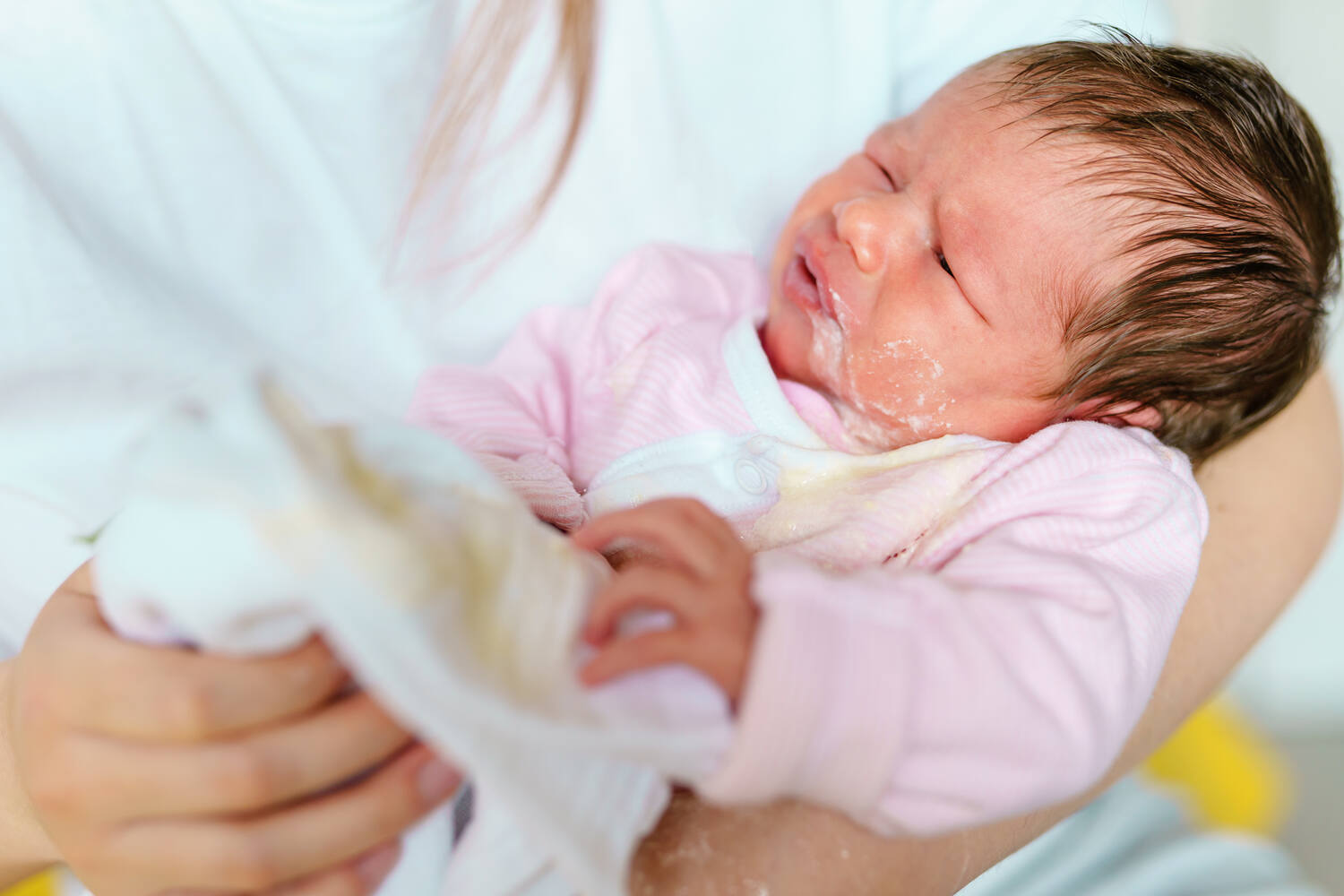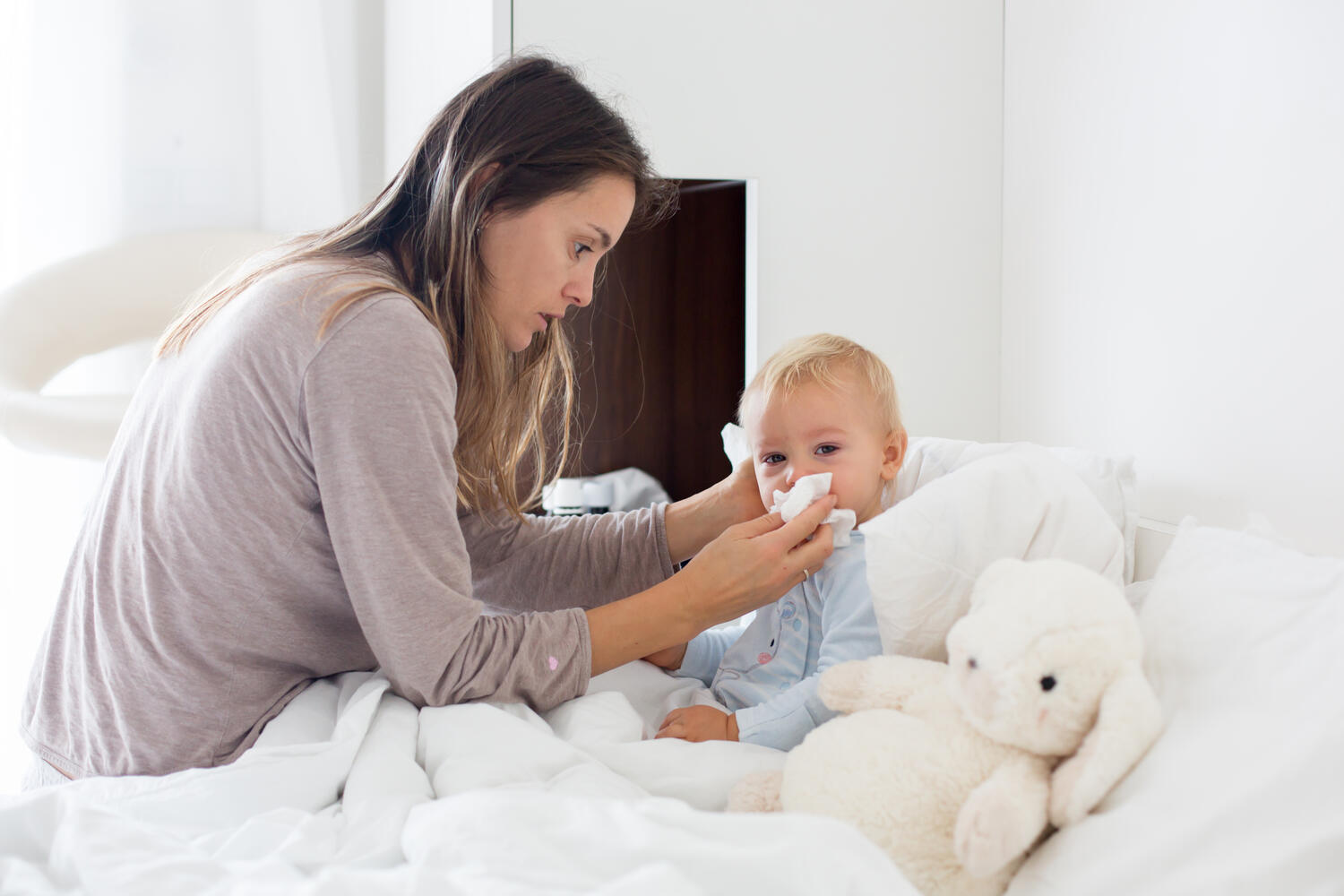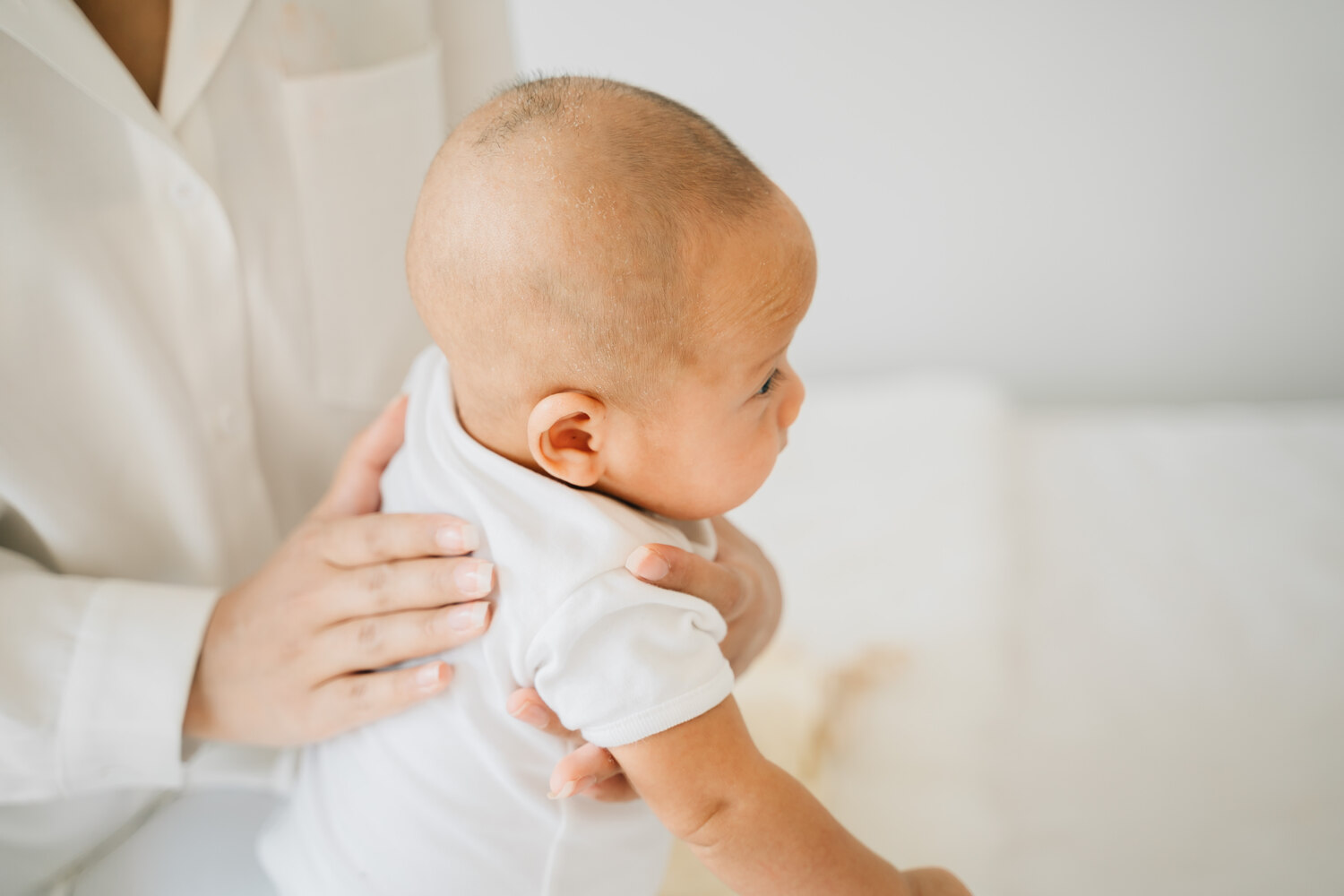
Babies are a cute bundle of joy whom one can admire the whole day. Even their coos sound pleasant, and parents have immense patience to keep wiping off the drool as well. But it becomes messy when they vomit or spit up. A baby spitting up mucus can be a normal occurrence, especially in the first few weeks of the baby’s life.
Though it is common for new-born babies to vomit, it’s not a very pleasant sight and makes the parents worried. Sometimes babies may spit up mucus with more frequency than usual. Coughing, vomiting milk, or spitting mucus is not something to worry about, but if it is consistent or recurring, it can be a cause for concern.
In This Article
- Is Baby Spitting Up Mucus Normal?
- Why Do Babies Spit Up Mucus?
- Tips to Help Stop A Baby From Spitting Up Mucus
- When to See A Doctor?
- FAQ’s
Is Baby Spitting Up Mucus Normal?
Yes, it is normal for babies to spit up mucus. Babies may sometimes spit up milk or mucus during or after feeding, or sometime during the day. This is common and generally not a cause for concern.
However, if your baby is spitting up mucus multiple times throughout the day, is feeling unwell, or displaying additional symptoms of sickness, you may need to get immediate medical attention for your little one.
Why Do Babies Spit Up Mucus?

Babies spitting up mucus could be due to various reasons. Some of the main reasons are listed below.
1. Illness
Babies have low immunity in the early stages of their life and are prone to catching bacterial and viral infections (1). The infection can easily reach the respiratory tract resulting in extensive cough and spitting up of mucus as well. Even a moderate infection of the respiratory tract can trigger mucus spitting in babies. Since babies can’t spit yet, they choke and gag.
2. Excessive Crying
Crying by babies is the only signal in the initial stages to show any sort of communication or discomfort, whether it is hunger, wet diaper, pain, fear, etc. Excessive crying can lead the baby to cough heavily or spit up mucus.
3. Allergies
Babies start on solid foods around the six-month mark. Some babies can be allergic to certain foods. When introduced to a new food that triggers an allergic reaction, some babies may tend to spit up mucus.
Allergies triggered by environmental factors such as pollen, dust, pollution, and pet dander can also result in mucus production which babies may spit up.
4. Quick Milk Flow
Sometimes the milk flow to the baby is more due to milk bottles with bigger holes or with women whose nipple size is a little more than usual. This results in rapid milk flow which does not get digested by the baby. This can result in the baby spitting up milk and mucus as well.
5. Gastric issues
Due to indigestion or swallowing of air during the feeding process, the babies end up spitting up. Acid reflux can also cause babies to spit up.
Tips to Help Stop A Baby From Spitting Up Mucus

If the baby spits up mucus, it is not something to worry about. Different ways help to prevent its frequency. A few common tips that help in stopping a baby from spitting up are:
1. Address The Route Cause
Mucus formation may happen due to various reasons such as congestion or food allergy. Addressing the route cause will be the first step to preventing mucus spit up in babies. You can take your baby to the pediatrician if the mucus spit up is getting frequent and troublesome.
2. Burp Your Baby
Burps given after regular intervals are helpful and reduce the risk of spitting up mucus. It is advisable to make the baby burp after ¼ the feed and then 1/8th feed of the milk.
2. Hold Your Baby in Upright Position After Feed
Let your baby sit in an upright position for at least 30 minutes after feed. This will ensure that the contents go into the stomach and will reduce the chances of spit-up.
3. Avoid Overfeeding Your Baby
Frequent feeds in small amounts may help reduce spit-up in babies, thus reducing the chances of mucus spit-up.
4. Reduce The Milk Flow
It is important to ensure that the milk flow is not excessive due to the size of the bottle nipple. It is better to squeeze milk and feed the baby if it is too much in order to control the milk flow.
5. Diet Changes
Sometimes, the diet of the mother might be a reason for the baby to spit up mucus. Removing certain standard food allergens from the baby may prevent mucus formation and spit up in breastfed babies
When to See A Doctor?

Spitting up mucus is common and can be on account of many reasons. Addressing these reasons can help reduce the chances of spit-ups and vomits. But there are certain conditions where it is crucial to see a doctor.
Do see your pediatrician if you observe the following symptoms or conditions in your baby.
- If your baby is spitting up thick mucus, you may need to see the doctor. Sometimes, babies may accidentally inhale that mucus which can be a choking hazard and may be fatal too.
- Sometimes, mucus may contain blood in it. This may be due to an injury or infection. In such cases, you must immediately take your baby to the pediatrician.
- A mucus with traces of brown blood in it may also require immediate medical attention.
- If the baby keeps crying consistently after spitting out mucus, it is important to consult a doctor. This could indicate some serious problems as well.
- In case the abdomen has swelling after spitting out, you may need to consult the doctor.
Baby spitting up mucus is normal, especially in the initial months after birth. But spitting up of mucus must be seen as a sign of trouble only when you notice any signs of discomfort or illness or observe any unusual changes in your baby. In all other cases, it is normal for even the healthiest of babies to spit out mucus.
FAQ’s
1. What is The Difference Between Phlegm And Mucus?
Phlegm and mucus are both secretions of the body to fight against infections. But the difference lies in their source. While phlegm is created by the throat and lungs, mucus is secreted by the nasal passage lining.
2. Why Does The Baby Spit up Mucus Which is Yellow in Color?
Babies spitting up yellow mucus can be due to congestion and mucus thickening. Babies routinely spit up after a feed and may simply be spitting up colostrum or mucus, that is. Yellow mucus could also be a regular respiratory secretion. But if the mucus is accompanied by fever or your baby feels unwell, you may need to consult a pediatrician.
3. How to Get Rid of The Mucus Naturally?
A rubber suction bulb that helps to suck the mucus is a great way to get rid of mucus naturally. Besides that, using saline drops and a humidifier also helps get rid of mucus in a natural way.
References
- Evolution of the immune system in humans from infancy to old age – PMC – [https://www.ncbi.nlm.nih.gov/pmc/articles/PMC4707740/]

